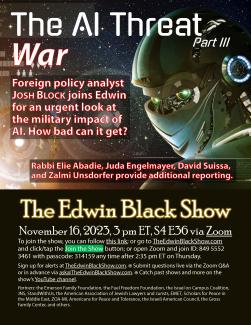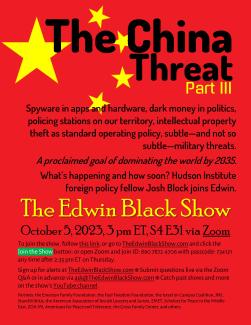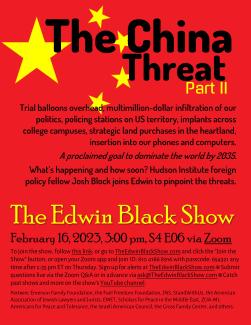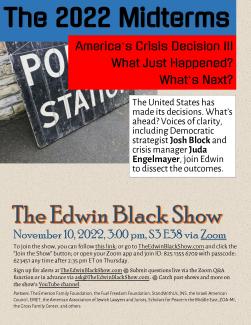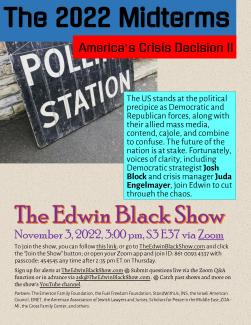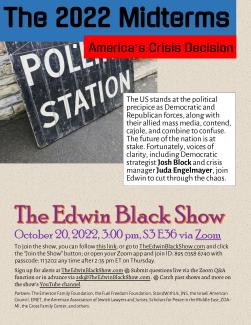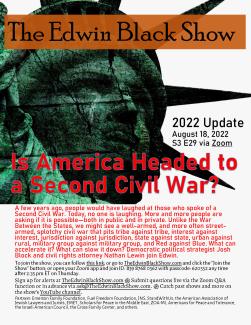On October 7, some 2,000 Hamas terrorists invaded Israel. Atrocities ensued against innocent civilian children, women, and men. Scores were abducted into Gaza.
Israel has promised to utterly destroy Hamas and its infrastructure with an “unprecedented response.”
Are residents of Gaza innocent civilians? Or are they complicit in Hamas’s acts of barbarity?
Foreign policy analyst Josh Block and international legal expert Avi Bell join Edwin; Rachel Ehrenfeld, Juda Engelmayer, Francisco Gil-White, Walid Phares, Sharon Polsky, and Zalmi Unsdorfer provide additional reports from around the world.


